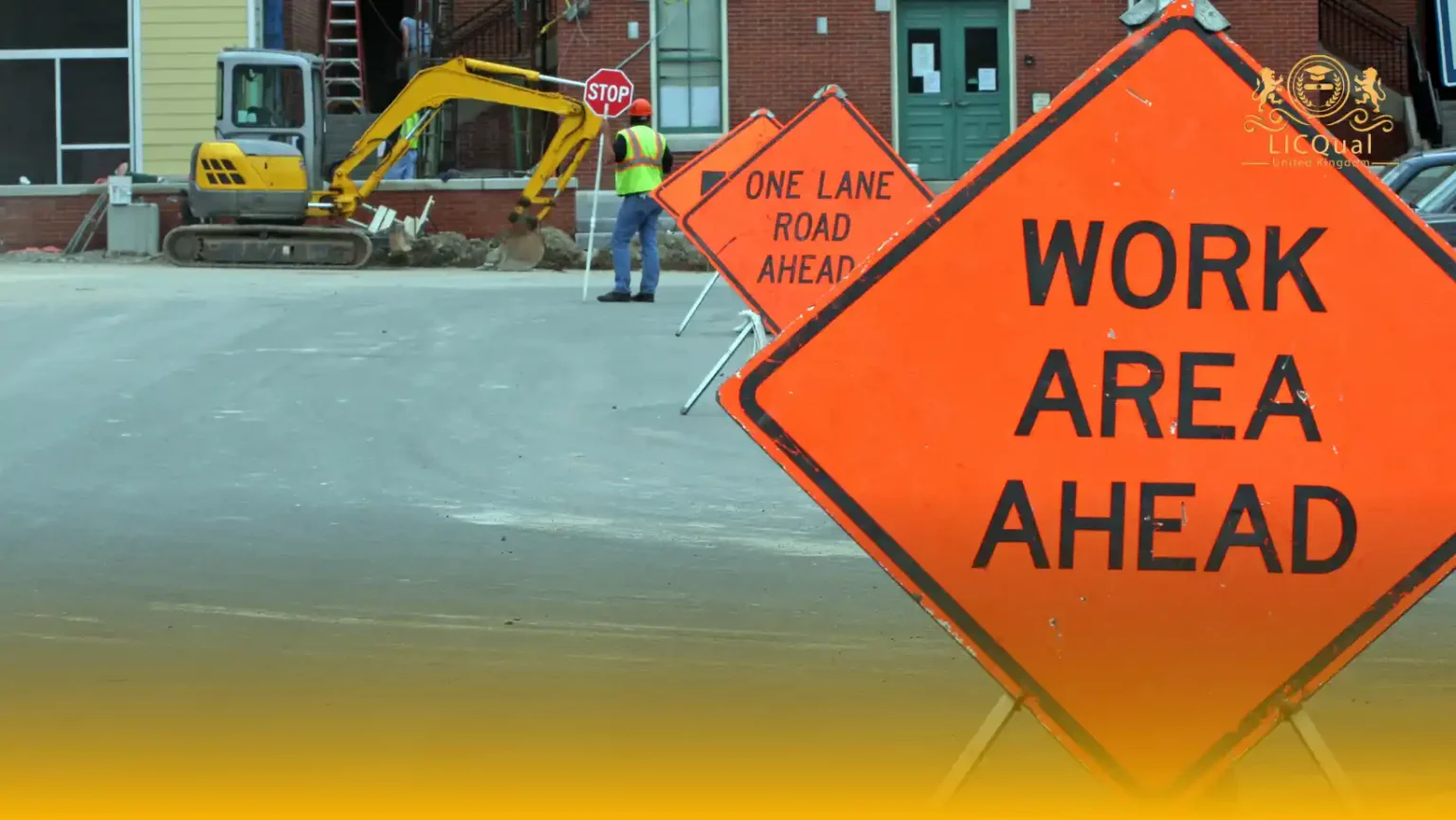The LICQual Level 1 Diploma in Signalman is an internationally accredited entry-level qualification designed to provide learners with the foundational knowledge and practical skills required to perform the duties of a signalman in lifting and rigging operations. This comprehensive program is ideal for individuals seeking to enter the lifting industry or support on-site crane operations with confidence, safety, and precision. The diploma lays a strong groundwork for those aiming to pursue long-term careers in construction, logistics, shipping, oil & gas, and other heavy industries.
The role of a signalman is critical in ensuring the safe and efficient movement of loads on construction sites and industrial environments. The Level 1 Diploma in Signalman focuses on basic hand and radio signal techniques, safety protocols, load direction communication, and the use of personal protective equipment (PPE). By developing clear communication between ground crews and crane operators, signalmen help prevent accidents and ensure operations run smoothly and efficiently.
This course covers essential topics such as the responsibilities of a signalman, understanding standard signal codes, load types and lifting techniques, environmental awareness, basic risk identification, and compliance with national and international health and safety standards. Learners will gain both theoretical knowledge and hands-on training in realistic scenarios to build their competence and confidence in real-world lifting environments.
One of the unique features of the LICQual Level 1 Diploma in Signalman is its structured, application-based approach. Through instructor-led workshops, visual demonstrations, and site-based simulations, participants learn how to perform signaling tasks effectively under different site conditions. This immersive training format ensures learners are well-prepared to function safely and efficiently within a coordinated lifting team from day one.
On completion of the course, learners will be awarded the LICQual Level 1 Diploma in Signalman, a respected qualification that validates their ability to support lifting operations safely and in compliance with global standards. This diploma not only enhances employability for new entrants but also serves as a solid foundation for further training, such as Level 2 and Level 3 signalman qualifications, or progression into rigging and crane-related roles.
Whether you’re starting a new career in the lifting industry or supporting high-risk operational teams, the LICQual Level 1 Diploma in Signalman offers the knowledge, confidence, and global recognition to begin your journey. This qualification opens doors to numerous opportunities across various sectors and provides the skills necessary to contribute to safer, more efficient work environments around the world.
Course Overview
Qualification Title
LICQual Level 1 Diploma in Signalman
Total Units
6
Total Credits
24
GLH
60
Qualification #
LICQ2200233
Qualification Specification
To enroll in the LICQual Level 1 Diploma in Signalman, applicants must meet the following criteria:
|
Qualification# |
Unit Title |
Credits |
GLH |
|---|---|---|---|
|
LICQ2200233-1 |
Introduction to Signalman Roles and Responsibilities |
4 |
10 |
|
LICQ2200233-2 |
Basic Communication Techniques for Signalmen |
4 |
10 |
|
LICQ2200233-3 |
Health and Safety Regulations for Signalmen |
4 |
10 |
|
LICQ2200233-4 |
Use of Signals in Simple Operations |
4 |
10 |
|
LICQ2200233-5 |
Basic Traffic Control and Management |
4 |
10 |
|
LICQ2200233-6 |
Understanding and Using Signaling Equipment |
4 |
10 |
By the end of this course, learners will be able to:
Introduction to Signalman Roles and Responsibilities:
- Understand the key duties and responsibilities of a Signalman within the railway industry.
- Demonstrate knowledge of the signaling process and how it contributes to the safe and efficient operation of the railway network.
- Identify the different signaling roles within the operational environment and how they collaborate to maintain safety.
Basic Communication Techniques for Signalmen:
- Apply effective communication techniques to relay information accurately and clearly to colleagues and operational teams.
- Understand the importance of clear and concise communication in preventing errors and ensuring safety.
- Utilize standard communication protocols and terminologies used in signaling operations.
Health and Safety Regulations for Signalmen:
- Recognize and adhere to key health and safety regulations applicable to signaling roles.
- Identify potential hazards in signaling operations and take appropriate steps to mitigate risks.
- Demonstrate an understanding of personal protective equipment (PPE) and other safety measures in the signaling environment.
Use of Signals in Simple Operations:
- Understand the function of basic signaling systems and their role in controlling train movements.
- Demonstrate the ability to interpret and respond to various signals in simple operational scenarios.
- Apply signaling procedures to ensure the safe and efficient movement of trains within operational limits.
Basic Traffic Control and Management:
- Develop the skills needed to manage basic traffic control systems in a signaling environment.
- Understand how to prioritize train movements and manage train schedules effectively.
- Implement appropriate actions to avoid conflicts and delays within the signaling process.
Understanding and Using Signaling Equipment:
- Gain knowledge of the different types of signaling equipment used in the railway industry.
- Demonstrate the ability to operate basic signaling devices and systems safely.
- Understand the maintenance and operational procedures for signaling equipment to ensure reliability and safety.
This diploma is ideal for:
Assessment and Verification
All units within this qualification are subject to internal assessment by the approved centre and external verification by LICQual. The qualification follows a criterion-referenced assessment approach, ensuring that learners meet all specified learning outcomes.
To achieve a ‘Pass’ in any unit, learners must provide valid, sufficient, and authentic evidence demonstrating their attainment of all learning outcomes and compliance with the prescribed assessment criteria. The Assessor is responsible for evaluating the evidence and determining whether the learner has successfully met the required standards.
Assessors must maintain a clear and comprehensive audit trail, documenting the basis for their assessment decisions to ensure transparency, consistency, and compliance with quality assurance requirements.







